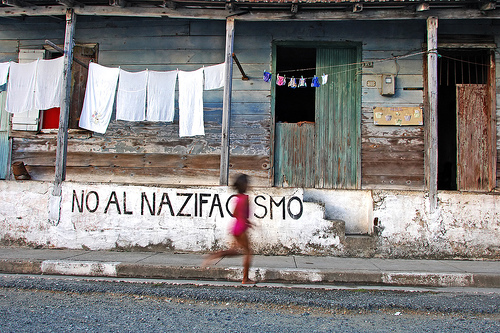NO. Should some elements of U.S. policy still be changed irrespective of what the Cuban government does in the short term?
We shouldn’t make unilateral concessions to the Castro regime because it will cost lives. Fundamentally fragile, totalitarian dictatorships interpret all policy actions through the narrow lens of regime survival. That means they unfailingly construe unilateral concessions as weakness. That is a very dangerous message to send to Raúl and Fidel Castro in the zero-sum game they play with their own people.
Simply put: to retain power, the Castros must deny Cubans the very freedoms they overwhelmingly want. Therefore, if a morally and economically bankrupt, violence-prone, half-century old dictatorship is led to believe that it can kill without any significant response, it will unhesitatingly do so.
Take a recent example: the July 2010 deal between
Why did the regime then sit down with Cardinal Jaime Ortega and then deport some political prisoners? Because as the Cardinal himself has recognized, the spike in internal civic defiance and the international condemnation caused by Zapata’s murder threatened the fragile status quo in which the regime survives.
The Castro dictatorship is facing a non-violent civic insurgency. Resistance is a fact. The Regime must suppress it to survive. This is why the regime continues to attack, arrest and imprison freedom activists. Only perceived losses in terms of international standing and foreign economic aid and investment can limit the dictatorship’s decision to repress.
Because of this, for the first time, the regime has sat down with the Catholic Church to work out a solution to a national issue. It cannot stabilize the country without the acquiescence of the resistance. However, the Castros fear that dealing directly with the resistance would somehow recognize that their monopoly over
There are two paths from here: one fraught with danger, the other rich with hope.
The first: steadily normalizing relations with a failed and spent dictatorship through the progressive unilateral lifting of sanctions. Would that be wise? Wouldn’t that tell the regime that it can continue to ignore its opposition and repress it precisely when that opposition has shown that it can bring the regime to the negotiating table? We can be sure of this: neither the desire for power of the Castros and their acolytes nor the growing resistance to it can be ignored. Unwarranted flexibilities with the Castros will undermine the island’s grass roots pro-democracy movement because they will directly decrease the political cost of repression for the regime.
The other track: understanding
The Administration must now use this to help build an international coalition that will firmly engage with and support
Short-term concessions run the risk of being interpreted as a green light to escalate repression. And this will open the door to the terrible possibility of a Caribbean Tiananmen Square, a massive exodus or both just 90 miles from





